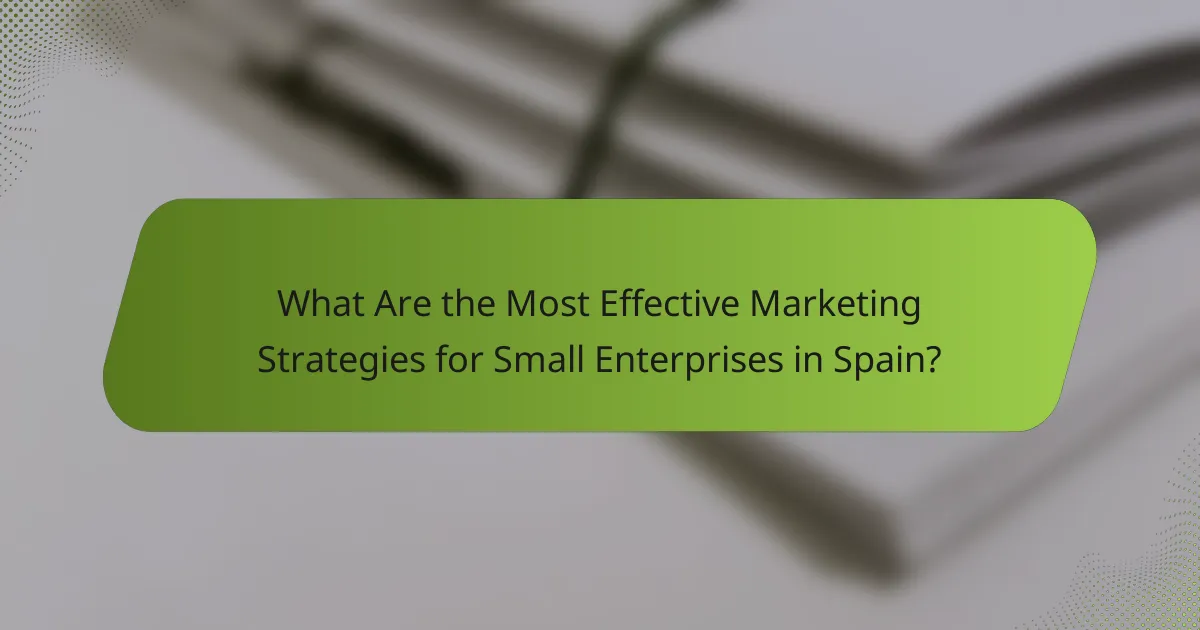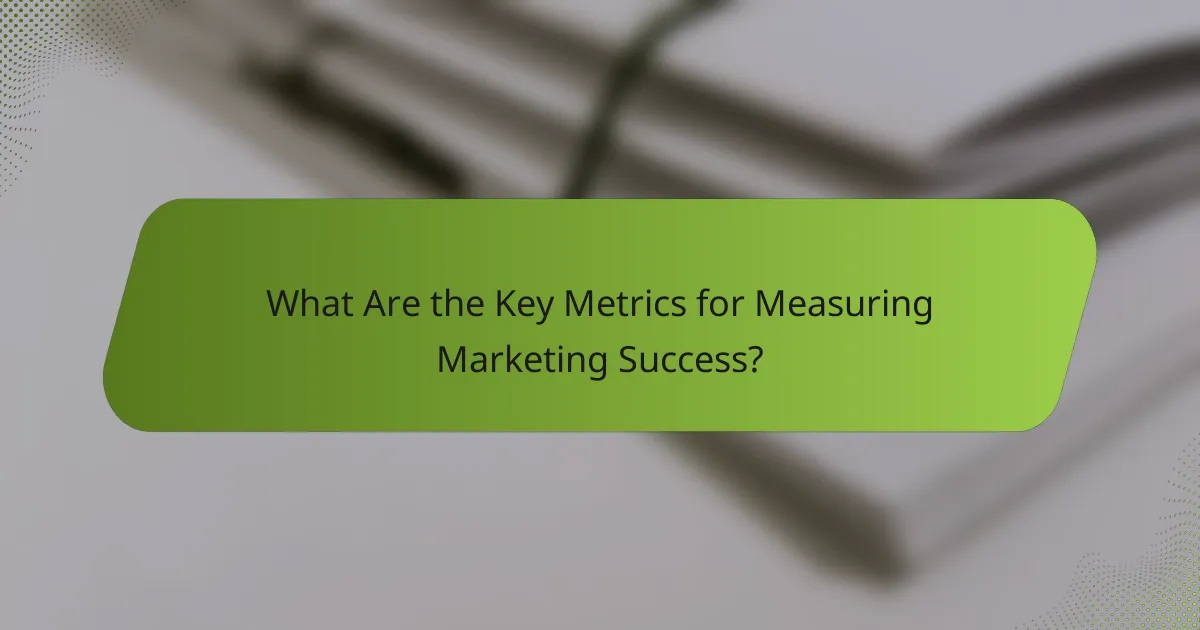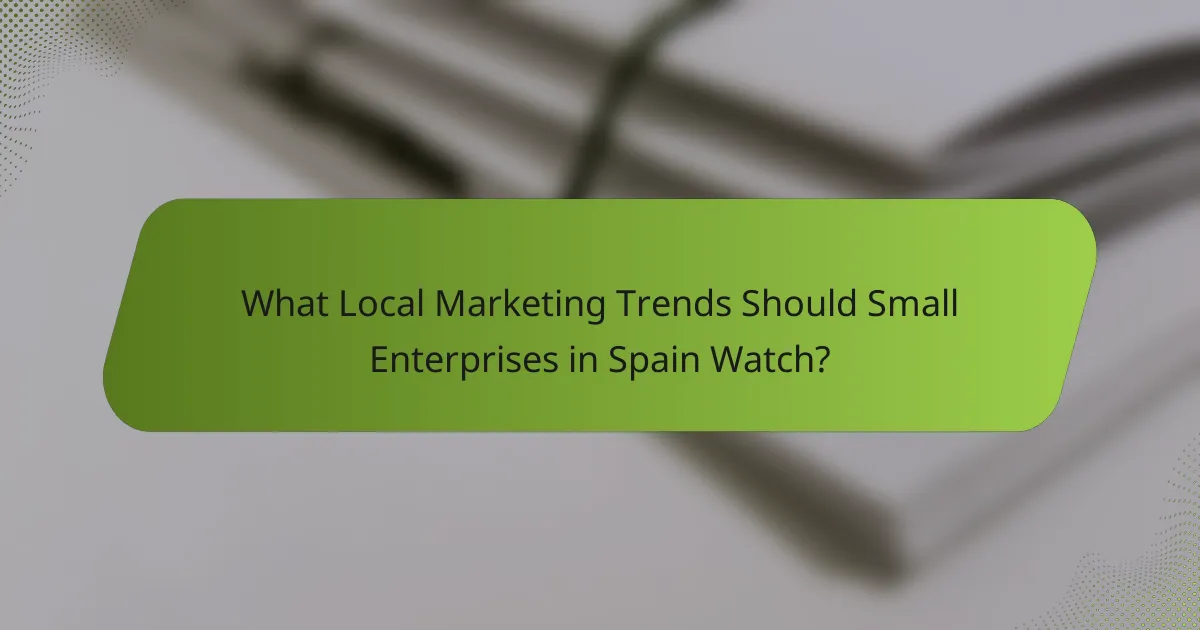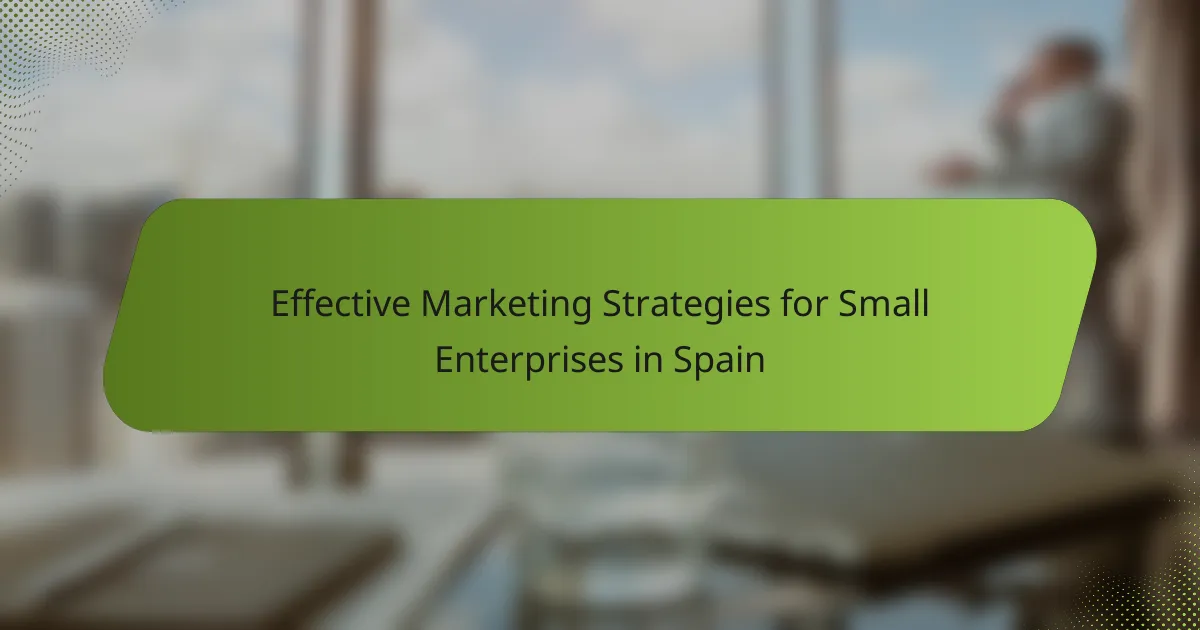Effective marketing strategies are essential for small enterprises in Spain to connect with local consumers and drive growth. By focusing on approaches such as content marketing, social media advertising, and local SEO, businesses can enhance their brand visibility and engage their target audience. Allocating a budget of 5% to 10% of annual revenue for these marketing efforts can significantly impact their success.

What Are the Most Effective Marketing Strategies for Small Enterprises in Spain?
Small enterprises in Spain can thrive by implementing targeted marketing strategies that resonate with local consumers. Key approaches include content marketing, social media advertising, email campaigns, search engine optimization, and local SEO tactics.
Content Marketing
Content marketing involves creating valuable and relevant content to attract and engage a target audience. For small businesses in Spain, this could mean producing blog posts, videos, or infographics that address local interests or challenges.
Consider focusing on topics that highlight your expertise while also providing solutions to common problems faced by your customers. For instance, a local bakery might share recipes or tips on baking techniques, fostering a community around their brand.
Social Media Advertising
Social media advertising allows small enterprises to reach specific demographics effectively. Platforms like Facebook, Instagram, and TikTok are popular in Spain and offer targeted ad options based on user behavior and preferences.
Small businesses should allocate a budget for social media ads, starting with a few hundred euros per month, to test different campaigns. Engaging visuals and clear calls to action can significantly enhance ad performance.
Email Marketing Campaigns
Email marketing remains a powerful tool for small enterprises to maintain customer relationships and drive sales. Building a quality email list through sign-ups on your website or in-store can yield high returns.
Consider sending regular newsletters that include promotions, product updates, or helpful content. Aim for a frequency of one to four emails per month to keep your audience engaged without overwhelming them.
Search Engine Optimization
Search engine optimization (SEO) is crucial for small businesses looking to improve their online visibility. By optimizing your website for relevant keywords, you can attract more organic traffic from search engines.
Focus on both on-page SEO, such as using appropriate meta tags and headings, and off-page SEO, like building backlinks from reputable sites. Regularly updating your content can also help maintain your rankings.
Local SEO Tactics
Local SEO tactics are essential for small enterprises that serve specific geographic areas. This includes optimizing your Google My Business listing and ensuring your business information is consistent across online directories.
Encourage satisfied customers to leave positive reviews, as these can significantly impact local search rankings. Additionally, using location-based keywords in your website content can help attract local customers effectively.

How Can Small Enterprises Leverage Social Media in Spain?
Small enterprises in Spain can effectively leverage social media to enhance brand visibility, engage with local customers, and drive sales. By utilizing platforms like Facebook, Instagram, and LinkedIn, businesses can create targeted marketing strategies that resonate with their audience.
Utilizing Facebook for Local Engagement
Facebook is a powerful tool for small enterprises aiming to engage with their local community in Spain. Businesses can create a dedicated page to share updates, promotions, and events, fostering a sense of connection with local customers.
Consider using Facebook Ads to target specific demographics within your area, allowing for precise marketing efforts. Engaging content, such as local stories or customer testimonials, can enhance interaction and build loyalty.
Instagram for Visual Branding
Instagram is ideal for small enterprises focusing on visual branding, particularly in sectors like fashion, food, and tourism. High-quality images and videos can showcase products and services, making them more appealing to potential customers.
Utilize features like Stories and Reels to share behind-the-scenes content or highlight customer experiences. Collaborating with local influencers can also amplify your reach and credibility within the community.
LinkedIn for B2B Networking
For small enterprises targeting other businesses, LinkedIn is essential for B2B networking in Spain. Creating a professional profile and sharing industry-related content can establish your business as a thought leader.
Engage with other businesses through comments and shares, and consider joining relevant groups to expand your network. Regularly updating your profile with achievements and case studies can attract potential partnerships and clients.

What Budget Should Small Enterprises Allocate for Marketing?
Small enterprises in Spain should consider allocating around 5% to 10% of their annual revenue for marketing efforts. This budget can vary based on the business’s growth stage, industry, and specific goals.
Typical Marketing Budget Percentages
For small businesses, a marketing budget typically ranges from 5% to 10% of total revenue. Startups may lean towards the higher end of this range to build brand awareness, while established companies might allocate closer to 5% as they focus on retention and customer loyalty.
It’s essential to assess your business’s unique circumstances when determining your marketing budget. Factors such as market competition, target audience, and marketing channels will influence how much you should invest.
Cost-Effective Marketing Tools
Small enterprises can utilize various cost-effective marketing tools to maximize their budget. Social media platforms like Facebook and Instagram offer affordable advertising options, allowing businesses to reach targeted audiences without significant expenditure.
Email marketing is another effective tool, with platforms like Mailchimp providing free or low-cost plans for small lists. Additionally, content marketing through blogs and SEO can enhance visibility and engagement without heavy upfront costs.

What Are the Key Metrics for Measuring Marketing Success?
Key metrics for measuring marketing success include Return on Investment (ROI), Customer Acquisition Cost (CAC), and conversion rates. These metrics help small enterprises in Spain evaluate the effectiveness of their marketing strategies and make informed decisions for improvement.
Return on Investment (ROI)
ROI is a crucial metric that measures the profitability of marketing efforts relative to the costs incurred. To calculate ROI, divide the net profit from marketing activities by the total marketing expenses, then multiply by 100 to get a percentage. A positive ROI indicates that the marketing strategy is generating more revenue than it costs.
For small businesses in Spain, aiming for an ROI of at least 100% is a good benchmark. This means that for every euro spent on marketing, the business should ideally earn back at least one euro in profit. Regularly tracking ROI can help identify which campaigns are effective and which need adjustment.
Customer Acquisition Cost (CAC)
CAC represents the total cost of acquiring a new customer, including marketing expenses, sales team costs, and any other related expenditures. To calculate CAC, divide the total costs associated with acquiring customers by the number of new customers gained during a specific period. Keeping CAC low is essential for maintaining profitability.
In Spain, small enterprises should strive for a CAC that is significantly lower than the lifetime value of a customer (LTV). A common rule of thumb is that CAC should be no more than one-third of LTV. This balance ensures that the business can sustain growth while managing costs effectively.
Conversion Rates
Conversion rates measure the percentage of potential customers who take a desired action, such as making a purchase or signing up for a newsletter. To calculate this rate, divide the number of conversions by the total number of visitors, then multiply by 100. High conversion rates indicate effective marketing and sales strategies.
For small enterprises in Spain, a typical conversion rate can range from 1% to 5%, depending on the industry and the effectiveness of the marketing tactics used. Improving conversion rates can involve optimizing website design, enhancing product descriptions, and using targeted advertising to reach the right audience.

What Local Marketing Trends Should Small Enterprises in Spain Watch?
Small enterprises in Spain should pay attention to the rise of influencer marketing and the increasing focus on sustainability. These trends are shaping consumer preferences and can significantly impact marketing strategies.
Rise of Influencer Marketing
Influencer marketing is becoming a powerful tool for small businesses in Spain, allowing them to reach targeted audiences through trusted voices. Collaborating with local influencers can enhance brand visibility and credibility, particularly among younger demographics.
To effectively leverage influencer marketing, small enterprises should identify influencers whose values align with their brand. Engaging micro-influencers, who often have more engaged audiences, can be a cost-effective strategy. Consider offering product samples or commissions to incentivize partnerships.
Increased Focus on Sustainability
Consumers in Spain are increasingly prioritizing sustainability, making it essential for small enterprises to adopt eco-friendly practices. This trend can influence purchasing decisions, with many customers willing to pay a premium for sustainable products.
Small businesses can enhance their sustainability efforts by sourcing local materials, reducing waste, and promoting ethical practices. Highlighting these initiatives in marketing campaigns can attract environmentally conscious consumers. Consider using certifications or labels that emphasize sustainability to build trust and credibility.
